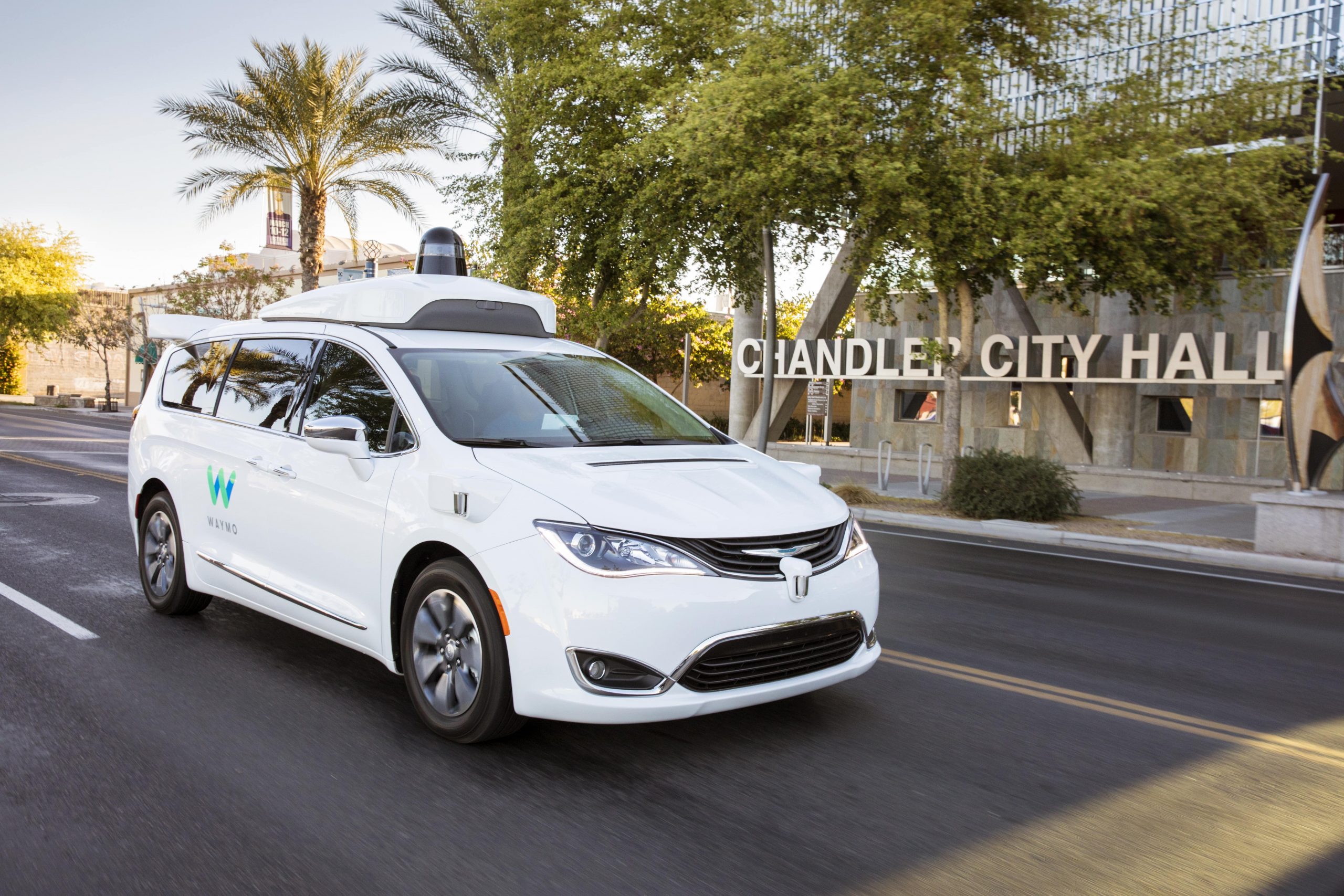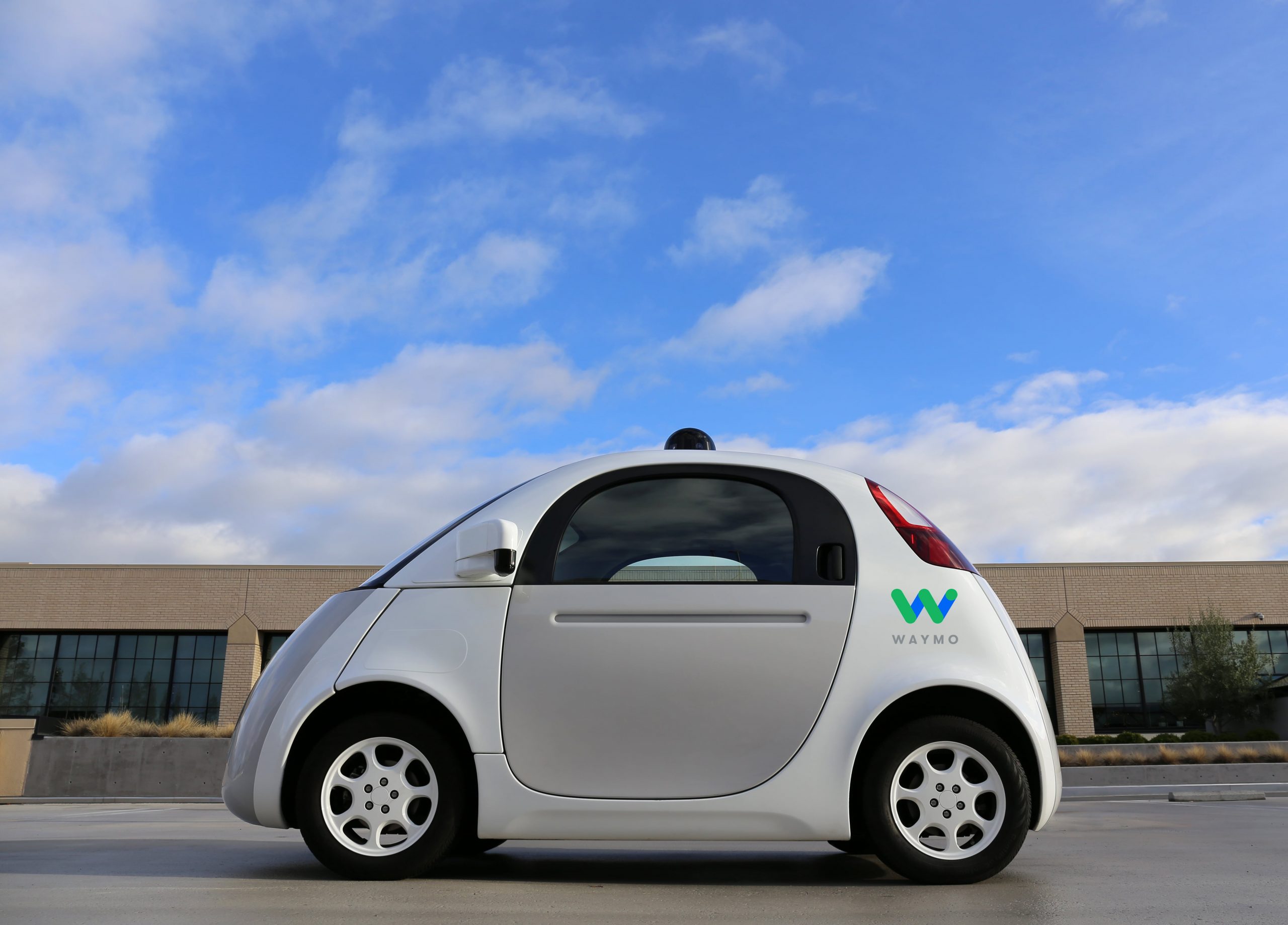Waymo One – the world’s first fully self-driving taxi service
Have you ever wondered how many hours you spend in traffic as a driver?
Here are a few statistics regarding time spent in traffic jams across Europe and the US (source):
- Drivers in London spent an average of 74 hours waiting in traffic in 2017, Parisians 69 hours, while drivers in Geneva and Zurich lost 52 and 51 hours respectively;
- If patience is not your strongest suit, don’t take jobs in Los Angeles or Moscow because you will find yourself wasting 102 hours stuck in traffic and 91 hours respectively.
That’s a lot of time you could spend more productively like answering emails or reading a book than standing behind the wheel getting upset because you are travelling at the speed of a snail!

Waymo is a self-driving technology company with a mission to make it safe and easy for people and things to move around.
In 2018, the company launched Waymo One, the world’s first commercial fully self-driving taxi service.
Mission
Waymo’s mission is to make it safe and easy for people and things to move around. We aim to bring fully self-driving technology to the world that can improve mobility by giving people the freedom to get around, and save thousands of lives now lost to traffic crashes.
Waymo
Self-Driving Technology
Waymo leverages the latest developments in self-driving technology. The Waymo car is fitted with sensors and software that are designed to detect pedestrians, cyclists, vehicles, road work and more from up to three football fields away in all 360 degrees.
The car is provided with its own detailed map that highlights information such as road profiles, curbs and sidewalks, lane markers, crosswalks, traffic lights, stop signs, and other road features.
The car’s sensors scan constantly for objects around the vehicle—pedestrians, cyclists, vehicles, road work, obstructions—and continuously read traffic controls, from traffic light colour and railroad crossing gates to temporary stop signs.
The software predicts the movements of everything around the vehicle based on their speed and trajectory. It tells the difference between a cyclist, a pedestrian and a car and understands that each of them moves differently.
Based on all this information, the car’s software determines the exact trajectory, speed, lane, and steering manoeuvres needed to progress along its route safely.

The Waymo driverless car / waymo.com
Driverless cars – Benefits
There have been 1.25 million deaths worldwide due to vehicle crashes in 2014 and 94% of crashes involved human choice or error in the US.
Vehicle crashes are usually the result of speeding, alcohol, distraction, drowsiness.
Waymo eliminates these causes making the roads a lot safer for everyone.

Firefly / waymo.com
Waymo company history and statistics:
- 2009 – Waymo begins as a Google self-driving car project lead by Google employees working on AI and machine learning;
- 2015 – the project creates the Firefly, the first driverless car equipped with custom sensors, computers, steering and braking but no steering wheel or a pedal; the car passes the test by driving around a legally blind person;
- 2016 – the driverless car project spins off under Google and becomes Waymo;
- 2017 – Waymo begins testing its fully self-driving vehicles on public roads without anyone in the driver’s seat;
- 2018 – Waymo One is launched;
- Over 1000 customers since launch;
- 400 people successfully applied to be in the Waymo early rider programme;
- the company currently has 600 autonomous vehicles on the road;
- Waymo has ordered 62,000 more Chrysler Pacificas and 20,000 I-Pace self-driving cars from Jaguar;
- Waymo’s fully self-driving technology has driven over 10 million miles on real-world roads since 2009;
- 10 years of building the AI-based technology for driverless cars;
- $5M in estimated revenue annually according to CrunchBase;
- The company currently has 13 team members.
Latest news
In the first half of this year, Waymo announced a series of exciting news: the opening of its factory in Detroit and two partnerships – the first with Lyft (allowing Lyft users to select a Waymo car instead of a human-driver) and the second with Renault and Nissan on behalf of The Alliance (to explore driverless mobility services for passengers and deliveries in France and Japan).
What’s next for Waymo?
The future is bright for Waymo and it includes adding more driverless cars to its fleet, expanding beyond Phoenix and testing self-driving trucks.
Join the Conversation
We’d love to hear what you have to say.
Get in touch with us on Facebook Group and Twitter.
Jobs that will be replaced by robots in the near future
source: Industry Week
The future is not that bright for the human race and its abilities to hold a job in front of the future robots and the artificial intelligence that are already or will soon be able to do your job much better than a human being. As seen in an Oxford study, around 50% of all jobs will be replaced by robots and 35% of existing UK jobs are at risk of automation in the next 20 years. Moreover, Boston Consulting Group, quoted by bbc.com, predicts that by 2025, up to a quarter of jobs will be replaced by either smart software or robots.
This appears to be a very interesting subject, as many publications are already writing about what the future will hold for us. We found great materials on msn.com, wired.com, bbc.com and digitaltrends.com.
According to fastcompany.com, automation, which includes both mechanized robots (whether humanoid or drone-shaped) and artificially intelligent software programs, are predicted to eliminate 6% of the jobs in the U.S. in the next five years. And it’s not just low-wage employees that need to be worried. Highly skilled, knowledge-based employees in some sectors, including legal and accounting, could see their jobs decimated in the next decade. Deloitte estimates that 39% of jobs in the legal sector could be automated in the next 10 years. Separate research has concluded that accountants have a 95% chance of losing their jobs to automation in the future.
Insurance Underwriters and Claims Representatives
source: Financial Review
The effects of automation on the insurance industry are already being felt. In Japan, Fukoku Mutual Life Insurance has recently replaced 30 of its medical insurance claims reps with an AI system based on IBM’s Watson Explore, reports the Guardian. The software can “analyze and interpret all of your data, including unstructured text, images, audio, and video” better and faster than a human can, and can “drastically reduce” the time needed to calculate Fukoku Mutual’s payouts, according to a company representative.
Medical Staff
Watson is also being programmed to work in medicine, helping physicians diagnose diseases, evaluate patients, and prescribe treatments. Watson would tap into medical journals, textbooks, individual patients’ medical history, and other sources to make a truly informed diagnosis and treat the patient accordingly. With so much information at its disposal at any moment, Watson could be more knowledgeable and less prone to mistakes and oversights than people, making it an invaluable resource for any physician — and a major force for eliminating human workers.
Bank representatives
If first was the ATM that caused some jobs lost in the banking system, followed by the growth of the online and the mobile that made possible for the consumer to have a more hands-on approach to their bank, it appears that in the future it’s likely that many of the remaining human-based teller and representative banking jobs will be finished off by AI (artificial intelligence), reports CNBC. AI won’t just be able to conduct cash transactions, it will be able to open accounts and process loans at a fraction of the cost and time it takes for human employees.
Financial Analysts
Once thought indispensable to a company, keen-eyed financial analysts could spot a trend before it happened, allowing institutions to adjust their portfolios and potentially make billions of dollars. But human financial analysts can no longer compete with artificially intelligent financial analysis software that can read and recognize trends in historic data to predict future market moves. It’s no wonder that financial analyst jobs could be the worst hit in the estimated 30% of banking sector jobs lost to AI in the next five to 10 years.
source: Express
Construction Workers
As seen in the last few years, manual labor jobs are highly under threat by automation. Robotic bricklayers will soon be introduced to construction sites that enable the machines to replace two to three human workers each, reports Technology Review. SAM (Semi-Automated Mason) can lay up to 1,200 bricks a day, compared to the 300 to 500 a human can do. While a human is still required to work with SAM to complete the more nuanced tasks, the use of SAM reduces the need for the three other bricklayers it would take to do the same job. Other on-site construction jobs such as crane operators and bulldozer drivers can also expect to see their positions filled by AI-controlled machines in the next decade.
Professional drivers
Driverless cars are here, and they’re already being tested on public streets in a few U.S. states. They’re better than human drivers in just about every way: they don’t have blind spots, they don’t get sleepy, and they don’t get distracted and Google feels confident they can have autonomous vehicles on the road within five years. The availability of this new technology is going to revolutionize companies that depend on professional drivers. Except in a few very challenging situations, autonomous vehicles will provide safer, cheaper, faster, and more reliable performance than humans. That means no more cab, bus, or truck drivers.
Call Center Employees
Already, many of today’s telemarketers are not human. In some cases, as you’ve probably experienced, there’s nothing but a recording on the other end of the line. In other cases, you may get a sales call and have no idea that you’re actually speaking to a computer. Everything you say gets an appropriate response — the voice may even laugh. In some cases, there is a human being on the other side, and they’re just pressing buttons on a keyboard to walk you through a pre-recorded but highly interactive marketing pitch. Using soundboard-assisted calling — regardless of what it says about the state of human interaction — has the potential to make individual call center employees far more productive: in some cases, a single worker will run two or even three calls at the same time. In the not too distant future, computers will be able to man the phones by themselves.
Accountants
The software becomes easier and easier to use and more consumer-friendly than ever before. For startups and small businesses, automating their accounting needs is an attractive alternative to paying an expensive accountant. The transition from professional accountants to do-it-yourself software solutions like Freshbooks and TurboTax won’t happen overnight, and there are a number of situations where human accountants will still be preferred, but most organizations will be perfectly happy to automate it as much as possible. As a result, the demand for accountants will decrease dramatically across many industries in the coming years.
Real Estate Agents
source: The Register
Everything you could possibly want to know is right at your fingertips. Online services like Trulia and Zillow provide a comprehensive search of all available properties, and sites like StreetAdvisor tell you everything you need to know about the neighborhood you’re considering. Real estate agents may have a conflict of interest when it comes to telling you about crime statistics and pollution levels, but you can get all of this information online, reliably and for free.

